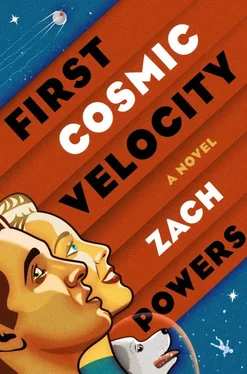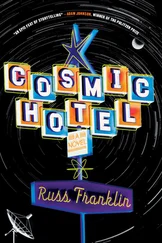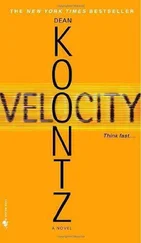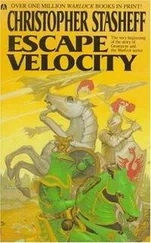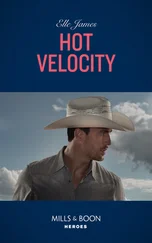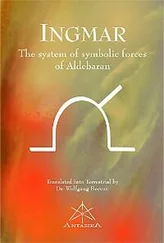Nadya had not commented when he told her about the detour, as if this new plan had been established from the start. She simply nodded. Leonid worried that he had taken the place of those who had commanded every aspect of her whole life, that he was no better than the Chief Designer. But Leonid would make it up to her. Once they escaped.
Kasha, for her part, dashed aboard the train without prompting, as if she knew it would take her to her roots. It was the little dog’s excitement that made the journey real to Leonid. He was going home, assuming the village still existed, that a single villager had survived the famine, that the old huts still stood, else the green of the valley had grown up over them or the rain had never returned and the valley was now nothing but dust.
Leonid’s skin pricked with gooseflesh. He wanted to turn around and leave. He would sprint to the engine and force the conductor to reverse the train, to pull them out of the valley. He had barely escaped with his life, and only then because of his brother. If he had not been a twin, he would have stayed and died with the rest of them. He sometimes imagined the villagers still alive and waiting for him. More often, though, he imagined their tombstones, jagged rocks with names chiseled there by untrained hands. What would he say to Grandmother? But no, she was most certainly dead. Was she? He realized he had never known her age. He thought of her as old because grandparents were old, when she might have been little older than the Chief Designer was now.
The thought of the Chief Designer gave him another pause. That passed quickly, though. In all his fantasies of returning home, of which there had been more than he had admitted to himself, his brother was with him. The Chief Designer had taken that from him, stripping him of hope and innocence and family and… the list could go on.
Leonid looked at Nadya. She touched the window with her fingertips, as if caressing the trees beyond. Or was it her reflection she saw, and in it the face of her sister?
A bolt of silence, and then the train leapt to a stop. The empty seats rattled. Kasha slid forward several inches, sticking out a paw to steady herself without opening her eyes. Nadya stood, maneuvered around Leonid’s knees, and headed for the exit. Leonid followed, snapping his fingers for Kasha. The dog popped to her feet, bouncing along as if she needed no transition between asleep and awake. His arm started a reflexive wave as he exited the train, but there was no one there to greet them.
The station had been rebuilt. Not that the structure was any larger, but instead of the tumbling wooden shed, now it was made of metal. Leonid could not call the shed new. It had been there long enough to grow red spots of rust. The door did not line up with the lopsided frame.
From down the hill came a rumble, a small truck motoring up the path from the village. Leonid recalled the slow walks to the station when he was a boy, but the truck had almost arrived already. An older man drove, and several teenagers sat in the open back, prodding each other and laughing. The truck pulled up alongside the freight car and the teenagers hopped off. Whiffs of exhaust twined with the green-tinged mountain air.
One of the teenagers slung open the freight car’s sliding door, and the others hopped inside. The older man, who on second glance was younger than Leonid had first assumed, stepped out of the truck and leaned on the hood, instructing the teens from time to time on where to set the boxes and sacks they lugged from the train.
Kasha took a few cautious steps away from the platform, sniffing at the air. She darted over to a kalyna by the side of the road, nosing, then licking the berries.
“No,” said Leonid. He remembered the berries’ bitter taste, and also how sick they had once made the original Kasha when she ate just a few.
The man by the truck inspected Leonid up and down. The man’s beard was thick and showed flecks of white. His bushy eyebrows cast shadows that hid his eyes, making it impossible to tell exactly where the man was looking. He made a deliberate act of spitting on the ground. Leonid realized he had said no in Russian.
Instead of eating the berries, Kasha shoved her rump into the kalyna’s branches and peed. The urine splashed loudly against the dry bed of leaves. Two sacks, thrown by the teens in the freight car, thumped to the ground. Kasha finished and scampered back to Leonid’s side, twitching her head in every direction, taking quick sniffs. She had never smelled mountains before. Leonid had almost forgotten how different the scent was from the choked air around Moscow.
Nadya walked down the hill. The man leaning on the car watched her. It was probably rare that the village received visitors, especially attractive female ones. But the man’s look was not a leer, his brows arched in curiosity. Then he looked at Kasha as if noticing her for the first time. His elbow slipped off the hood. He stumbled forward a few steps.
“Kasha,” he whispered.
Kasha’s ears perked up.
“Is it you, Kasha?”
She looked at the man for a long moment, nudging up to Leonid’s leg. Then her tail broke into a wide wag, and she scampered to the man’s feet. He bent down and scratched her as if she were his own dog greeting him after a long trip away, stroking from her head to her rump, following the curl of her tail with his hand as it arced up and over her back.
“But no,” said the man. “You’re Kasha but you’re not. Her tail always hung limp.”
This man knew Kasha’s mother, the original Kasha. He was a villager who survived. Leonid tried to recognize him, searching his face for a feature that matched one in his memory. The faces he remembered were blurry at best. The man looked up at Leonid, and the two inspected each other, faint recognition growing into certainty. The man spoke first.
He said Leonid’s brother’s real name, the one he had been born with before Tsiolkovski named them both Leonid.
Leonid felt himself smile. “Close, Mykola.”
Mykola said Leonid’s real name.
“I didn’t expect to see you,” said Leonid. “I didn’t expect to see anyone.”
“And yet you still returned.”
Hearing Mykola say it suddenly made it real. Leonid was home. He felt the valley around him, a swirling sensation, as if he were caught in a whirlpool that drained to the valley’s lowest point. Or he was the lowest point, the trees in orbit around him. He felt release, too, an old throbbing pain finally relieved, a pain he could only now identify by its absence.
Leonid pointed at the dog. “Meet Kasha, the daughter of the original.”
“She looks just the same! Except for the tail, of course.” Mykola sat back in the dirt and pulled Kasha onto his lap. His face, what could be seen of it behind the beard, lit up like a child’s. “And the original Kasha?”
“She grew old, Mykola. She might have been old already when you knew her. We never knew her age.”
“Her life was good, though, yes?” He tickled Kasha behind the ears.
“Very. She was loved and loved in return.” Leonid’s voice choked off at the end. It seemed he was still not immune to the topic of loss.
“Good. I hadn’t thought about her much in recent years. I used to wonder often, though.”
Kasha hopped off Mykola’s lap and trotted after Nadya. The two of them wandered through the brush at the edge of the road, Nadya picking leaves from saplings. There were no saplings in the village of Leonid’s memory.
“And you, Mykola?” asked Leonid. “How’ve you been?”
“Things got better not long after you and your brother left. The train started coming again, bringing supplies. Then the rains returned. We were able to grow our own food. People had babies again. A few people even moved here from outside the village. Apparently, there were places worse off.” Mykola rose and brushed the dirt from the back of his pants. “But how about you? You were the only ones to escape. What did you do?”
Читать дальше
